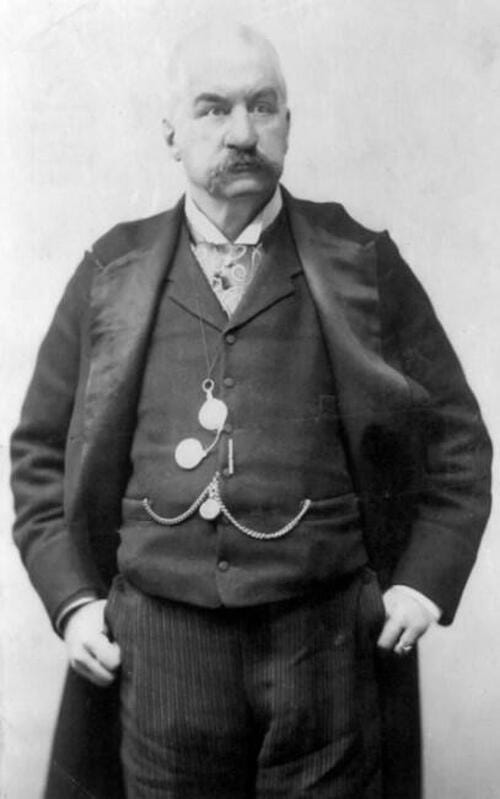Janet Yellen Plays J.P. Morgan
According to the four women at Bloomberg who wrote this article, the $30 billion deposit infusion from big banks to First Republic Bank (FRC) was Janet Yellen’s idea:
Jamie Dimon and Janet Yellen were on a call Tuesday, when she floated an idea: What if the nation’s largest lenders deposited billions of dollars into First Republic Bank, the latest firm getting nudged toward the brink by a depositor panic […]
Already the rescue spearheaded by Dimon is sparking comparisons to the Panic of 1907, when J. Pierpont Morgan — who built up the company Dimon now leads — corralled Wall Street financiers into his private library and browbeat them into propping up the Trust Company of America, seeking to stop a string of bank runs that threatened to upend the industry.
Note the ladies’ use of the passive voice when they compare this Yellen-inspired intervention into J. Pierpont Morgan single handedly ending the Panic of 1907.

By 1907, JP Morgan was the absolute titan of American finance, having helped consolidate America’s largest industrial companies and having bailed out the U.S. Treasury in the Panic of 1893. He had the stature to wrangle the largest banks and put out the panic; Janet Yellen does not.
That was apparent in her testimony before the U.S. Senate, where Oklahoma’s Jim Lankford pointed out that her actions were driving depositors from community banks to “too big to fail” banks:
Watch that clip embedded in Mike Hobart’s tweet above and ask yourself if you felt reassured by Yellen’s performance there.
Spreading The Risk of Default
The Bloomberg ladies found a professor willing to praise the $30 billion deposit infusion,
“If this works, it is a brilliant two-fer,’” said Todd Baker, a senior fellow at Columbia University’s Richard Paul Richman Center for Business, Law, and Public Policy. Big banks already were coming under fire for soaking up deposits from smaller lenders. Now they can show they’re part of the solution, while the Biden administration worries about one less bank, he said.
But Pershing Square CEO Bill Ackman saw it differently, arguing that the deposit infusion risked spreading First Republic’s default risk to America’s largest banks:
@SecYellen has apparently pushed the SIBs [Systematically Important Banks] to recycle some of the deposits they received from
@firstrepublic back into FRB for 120 days. The result is that FRB default risk is now being spread to our largest banks. Spreading the risk of financial contagion to achieve a false sense of confidence in FRB is bad policy. The SIBs would never have made this low return investment in deposits unless they were pressured to do so and without assurances that FRB deposits would be backstopped if it failed.
The market has responded to this fictional vote of confidence with a 35% after-market decline in FRB stock [. FRB is no SVB. It is a well-managed, well-capitalized, high-service bank with good assets that is beloved by its clients. It is caught up in a bank run due to no fault of its own. It does not deserve to fail.
We need a temporary systemwide deposit guarantee immediately until expanded and modernized @FDICgov insurance system is made widely available. The press release announcing the $30B of deposits raised more questions than it answers. Lack of transparency causes market participants to assume the worst. I have said before that hours matter. We have allowed days to go by. Half measures don’t work when there is a crisis of confidence […]
We need to stop this now. We are beyond the point where the private sector can solve the problem and are in the hands of our government and regulators. Tick-tock.
Ackman is right that deposit insurance is the key issue now, as I wrote recently (Preventing The Next Bank Collapse). As long as depositors feel their deposits will only be safe in a handful of the largest banks, they will continue to pull money from smaller regional banks.
Trading Banks
That dynamic of deposits flowing from smaller banks to big ones that Ackman mentioned is one of the reasons we placed bets against a few regional banks earlier this week.
The erratic nature of the federal response so far seems to be creating some opportunities for investors on both the long and the short sides.

